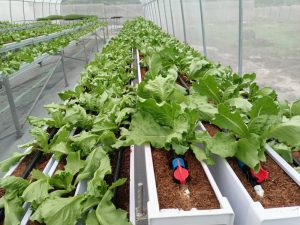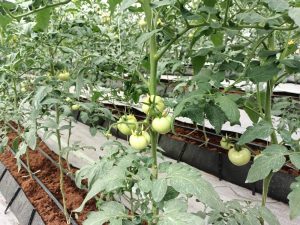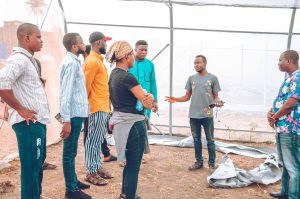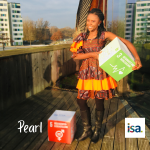INTRODUCTION OF IFE-OLUWALE FADELE CALEB
“Hunger is never seasonal, so food production should not be seasonal”. Participating in the ISA program will be a springboard for me to have a global and broadened perspective on transforming and positively changing the food production system narrative, in order to increase agricultural productivity and facilitate sustained economic growth. I believe ISA is the right place to birth this reality.


Ife-Oluwa Olawale Fadele Caleb (27 years) from Nigeria is a development practitioner, an agricultural economist, a behavioural therapist, and an early career pracademic in the fields of agriculture and sustainability with a keen interest in climate change, agri-food systems, Food security, agricultural innovation, rural development, and agri-tech deployment in agriculture. He is also a 2021 Blum global fellow of the Milken Innovation Center, Jerusalem Institute for Policy Research. He works with agritech companies & organizations as well as indigenous groups, especially smallholder farmers, women, and youths to address pertinent socio-economic and environmental challenges that affect the core of their livelihoods. He is living the dream of applying and deploying research to field practices for sustainable development.
 His ISA project focuses on the deployment of hydroponics farming techniques for climate change adaptation for indigenous people (smallholder farmers, women, and youths). The aim is to transform the food production system of the nation through the provision of qualitative agricultural training, deployment of sustainable agri-techs, and relevant green skill transfer in order to increase agricultural productivity while facilitating food security goals. He is looking forward to gaining hands-on experience and being equipped with state-of-the-art digital agri-tech solutions and climate change adaptation skills that can address the multi-faceted challenges of agri-food systems in Nigeria while working with others in order to build an ecosystem of future possibilities in achieving the SDGs
His ISA project focuses on the deployment of hydroponics farming techniques for climate change adaptation for indigenous people (smallholder farmers, women, and youths). The aim is to transform the food production system of the nation through the provision of qualitative agricultural training, deployment of sustainable agri-techs, and relevant green skill transfer in order to increase agricultural productivity while facilitating food security goals. He is looking forward to gaining hands-on experience and being equipped with state-of-the-art digital agri-tech solutions and climate change adaptation skills that can address the multi-faceted challenges of agri-food systems in Nigeria while working with others in order to build an ecosystem of future possibilities in achieving the SDGs



